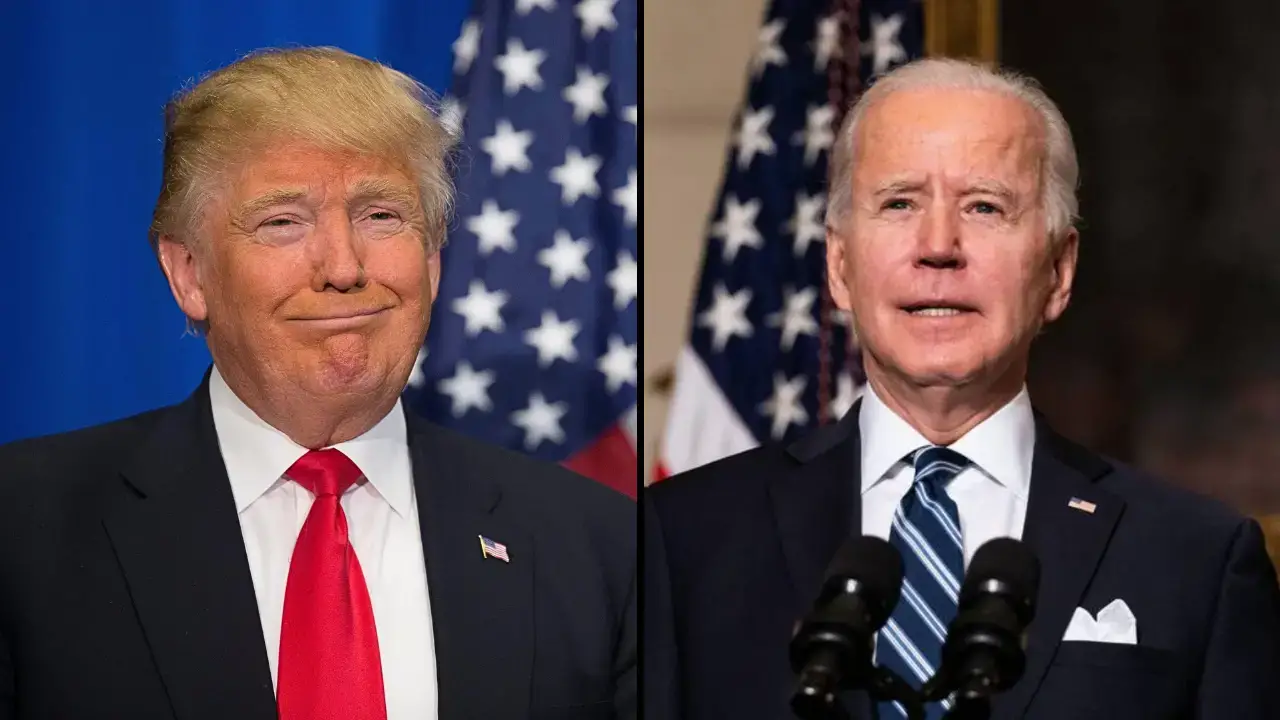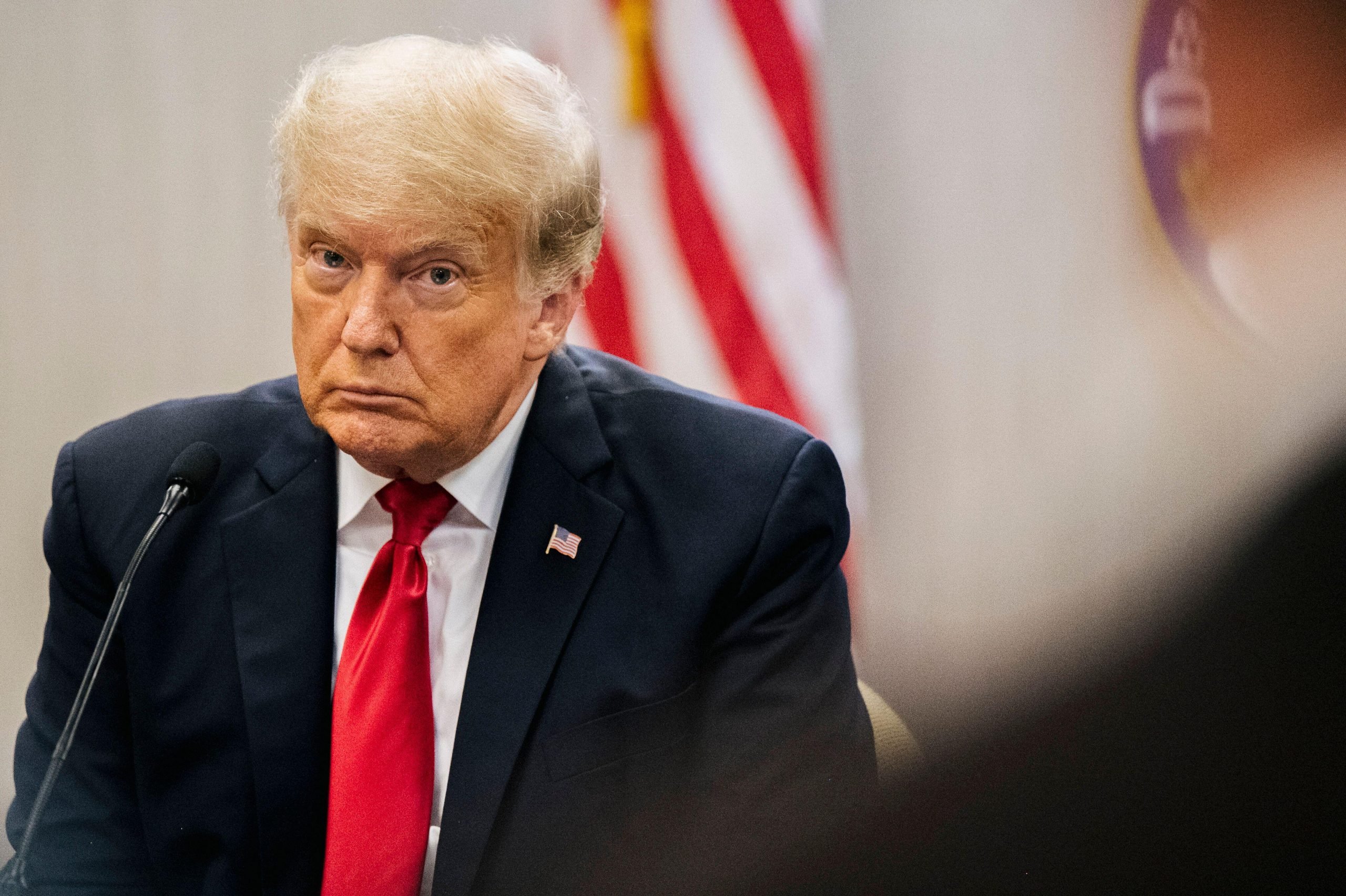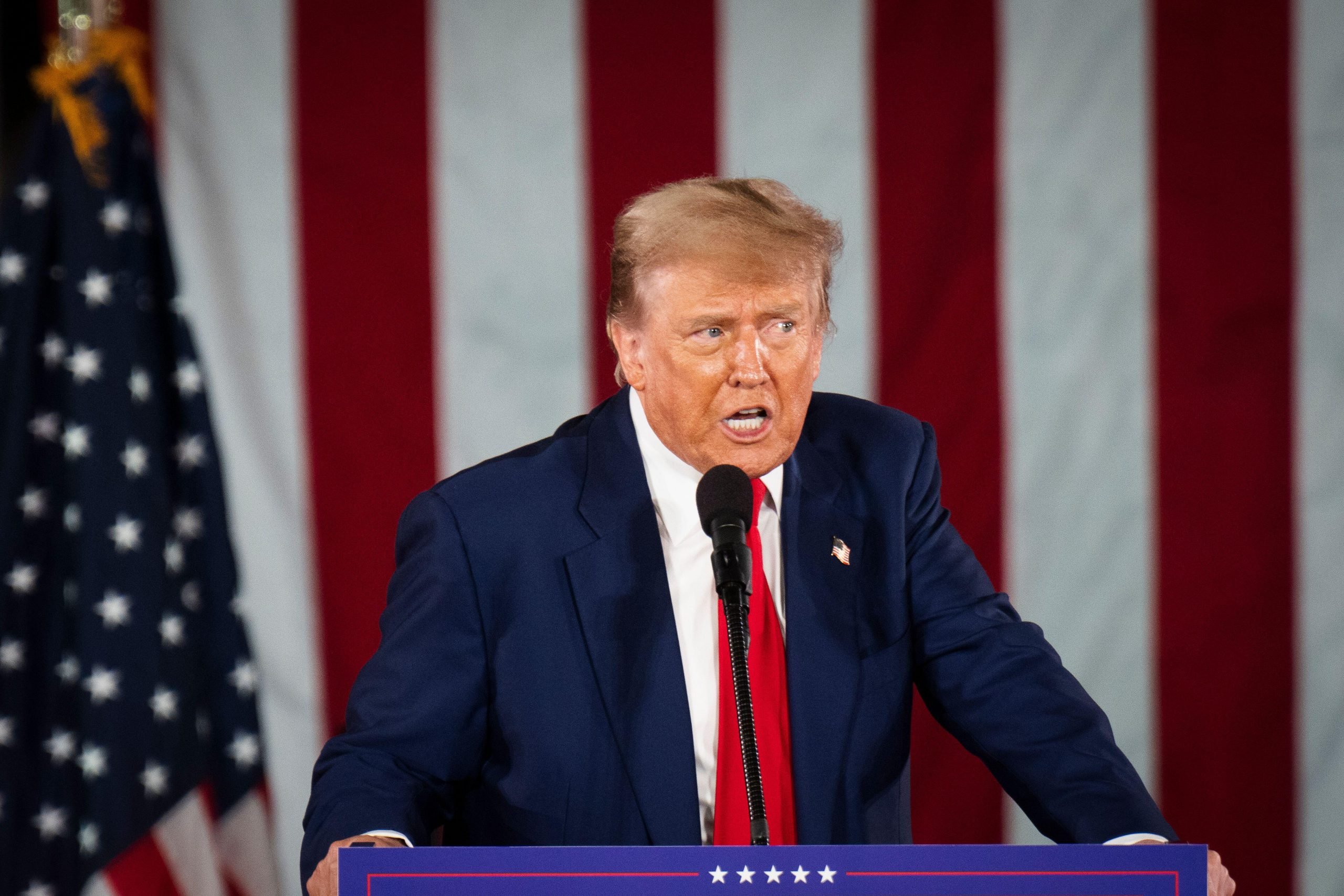
Credit: Alamy
Donald Trump’s ‘Enemies List’ And What It Could Mean For Those On It
The news of Donald Trump‘s ‘enemies list,’ and the consequences for those who are on it, has left the internet feeling scared.
Following his 2024 presidential victory, Donald Trump has been making headlines with talk of retribution against an extensive list of adversaries, which Politico has termed his ‘enemies list.’
This list allegedly includes key political figures, critics, and officials, with Trump hinting at legal or punitive actions he may pursue against them now that he holds executive power.
Throughout his campaign, Trump frequently vowed to hold certain individuals accountable, escalating his rhetoric to the point of threatening prosecutions and investigations.
For many of his supporters, these statements were seen as campaign talk.
However, close allies and political observers worry that Trump, unbound by future reelection concerns, could take aggressive action to carry out his promises.
This shift is enabled by recent Supreme Court rulings granting presidents considerable legal protections post-office, and by a team of advisors less inclined to check his ambitions.

Potential Targets on Trump’s List
Among those Trump has repeatedly targeted are prominent Democrats, current and former government officials, and media personalities:
President Joe Biden and Family: Trump has called Biden ‘corrupt’ and pledged to appoint a special prosecutor to investigate the ‘Biden crime family.’ This rhetoric reflects his long-standing grievances over the 2020 election, which Trump continues to claim was fraudulent.
Vice President Kamala Harris: Trump has been vocal about Harris’s immigration policies, accusing her of enabling crime by failing to secure the U.S.-Mexico border. He has gone as far as suggesting that Harris should face impeachment and prosecution for her role in immigration management.
Former President Barack Obama: Trump has accused Obama of ‘treason’ over alleged spying on his 2016 campaign. Despite investigations clarifying that the surveillance involved limited actions related to foreign policy advisors, Trump has continued to push for what he calls ‘public military tribunals.’
Former Secretary of State Hillary Clinton: Clinton, whom Trump has disparaged since his 2016 campaign, remains a target of his ire. He has resurrected the ‘lock her up’ chant, hinting at potential criminal investigations concerning her past conduct as Secretary of State.
Speaker Nancy Pelosi: Trump has indicated Pelosi should face charges related to stock transactions by her husband and the handling of the Capitol’s security on January 6, 2021. He has also condemned her symbolic act of tearing up his State of the Union address in 2020.

Attorney General Letitia James and Justice Arthur Engoron: New York officials who led investigations into Trump’s business dealings, resulting in significant financial penalties, have faced Trump’s threats of prosecution. Trump has accused James of election interference and targeted Engoron, the judge overseeing related cases, with verbal attacks.
Special Counsel Jack Smith and District Attorney Alvin Bragg: Both prosecutors who led cases against Trump have been accused of misconduct. Trump has labeled Smith ‘mentally deranged’ and called for his imprisonment, while also suggesting Bragg should face charges for election interference.
Other Prominent Republicans and Former Officials: Figures like Liz Cheney, Mark Milley, and former FBI officials James Comey, Peter Strzok, and Lisa Page are also on Trump’s list. He has accused Cheney of hypocrisy and treason, Milley of actions warranting severe punishment, and former FBI officials of conspiring against him.
Social Media and Media Executives: Mark Zuckerberg, the founder of Facebook, has also been threatened with prison, accused by Trump of working to undermine his 2020 election bid through charitable donations that were allegedly biased.
Hunter Biden and the Biden Family: Hunter Biden, the president’s son, has been a particular focus of Trump’s allegations of corruption. Although Hunter Biden has faced legal issues related to taxes and gun charges, Trump has pledged to extend investigations into his foreign business dealings.

Trump’s return to power, fueled by a platform of retribution, represents a significant departure from traditional presidential governance.
For many observers, this approach draws comparisons to Richard Nixon’s era, where political enemies were systematically targeted.
Trump’s critics fear that his stated intentions to punish opponents could further polarize American society and weaken democratic norms.
On the other hand, Trump’s supporters argue that he is simply holding individuals accountable, especially those they believe have abused power or acted with partisan bias.
The future remains uncertain as to how far Trump will take these threats.
While some believe his past rhetoric could translate into real consequences for his adversaries, others anticipate that practical or legal challenges could impede his efforts.
Either way, Trump’s ‘enemies list’ and the potential for punitive actions will likely shape the political landscape as he assumes office again.
Related Article: Everyone Is Saying The Same Thing As Trump Wins 2024 Presidential Election
Related Article: Why Trump Won’t Become President Immediately After 2024 Election